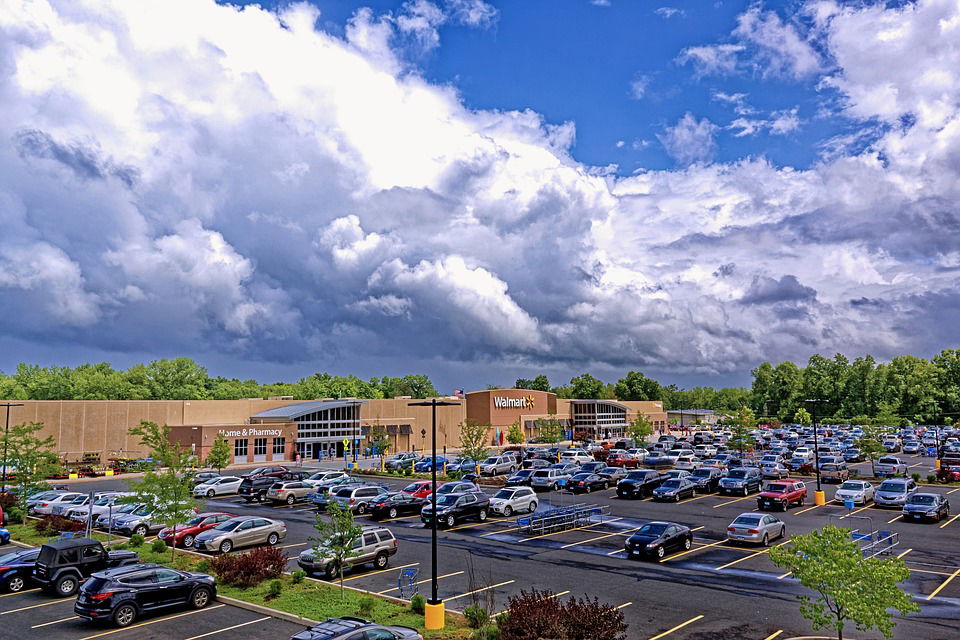Stocks That Will Do Well with Rampant Inflation

Inflation is a real thing that we are all going to have to deal with around the world for some time to come. In my home country, the United States, the reasons behind it are all too clear. And because the U.S. dollar and the U.S. economy continue to be a large contributing factor determining how economies are affected all over the world, anything happening here is going to spill over into other countries.
Of course, inflation will also impact the stock market since inflation will eat away at one's discretionary spending ability.
This does not mean that all stocks will be impacted in the same way. During the last Great Recession, for example, there were a handful of companies that did exceptionally well despite economic pressures.
McDonald's, surprisingly, was one of them. Probably thanks to their value menu which allowed Americans to feed their faces at relatively low cost.
Part of determining what to invest in is to work out how money will be spent in a tougher economic climate wherein wages will not go as far as they once did. Where are people going to go, and what are they going to spend their money on?
Some things are a bit obvious. For example, just because one's money won't go as far doesn't mean people will stop eating. They will simply shift their dollars to fewer brand name foods and buy more generic items.
Based on that, you can make a fair bet that grocery stores will do okay, even if their margins will be stretched a bit with fewer, higher margin brand name items leaving their shelves.

When it comes to grocery chains though, some will of course fare better than others depending on what they offer in terms of value to their customers. Ruler Foods, which is similar to a Lidl and an Aldi, owned by Kroger, is one that would likely do better, for example, than say a Kroger store itself. High end stores like Sendik's in Milwaukee, Wisconsin or Dierberg's in the St. Louis, Missouri metro area (neither of which are publicly traded), will not fare as well.
Lidl and Aldi are also not public companies, by the way. I just cite them as examples to illustrate my point.
It would be nice to know which, if any, generic food manufacturers are publicly traded—but this has always been a closely guarded thing mostly. Pepsico, which of course is known for Pepsi, Frito-Lay and Quaker Oats is probably doing some business in this area. They quietly produce many generic or lesser known brands of soda, for example. ConAgra Foods may be in some of this business as well.
It is probably easier to determine the best sellers of these kinds of products to know where you will get the most bang for your investment dollars in a high inflation market.
A company like Walmart, being one of the largest retailers in the world, who also enjoy massive influence on pricing due to their large distribution network, would do well. And we have already seen some of this already as Walmart has been recapturing a large part of the grocery market since prices have jumped.
Dollar Tree Stores, which also owns the bargain shopping giant, Family Dollar will also do well in this kind of a climate.
Dollar General is another popular candidate, with a very high presence in more rural areas, particularly where it may be harder to get to larger grocery and other retail chains.
Another area to keep in mind are auto parts stores like Checkers, O'Reilly's and Auto Zone since in tougher economies people are more likely to keep their vehicles longer, and it's sometimes cheaper in the short term to repair cars than to replace them.
Not surprisingly, you would also probably be okay taking a look at some credit card companies—despite the fact that there are typically more defaults in tougher economic times, a lot of the money the credit card companies make is from fees collected from transactions.

There is a surprising extra here to consider, and that is that in times when money is tighter, people are actually more prone to pay down their debts. So, interest charges collected tend to be lower. But there is plenty of offset in this, and because of that, credit cards continue to be a fair bet.
The best takeaway here is to simply be observant. Not only watch the trends of others and where they are going to spend their money. Watch where you will spend your money as well.
After all, one of the best ways to navigate inflation, and to work around it, is to be an active participant in the businesses that will do the best business when money is leaner.
As time and history has proven throughout the ages, there are winners in even the darkest of economic times. How you become a winner with them is a simple matter of being able to figure out who they are, and investing in them.
As the old saying goes, one man's disaster is another man's treasure.


If I look at my own salary and the inflation that has happened in South Africa it is absolutely devastating. My earnings have remained the same for going on 3 years. However, my expenses have increased. Fuel costs more, food costs more, electricity costs nearly twice what it did 3 years ago where I live. Then of course I ended up cutting my medical aid and putting it into crypto annually because I refuse to support a company with unethical policies (and it was no longer financially viable).
The amount of people who were breaking even every month who are now poverty stricken here is heart breaking.
I am thankful I read this post though, because I feel you are 100% correct with the statement of finding the winners. I need to go find some winners.